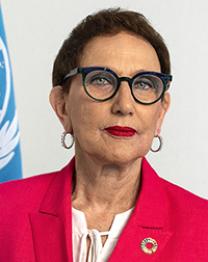As global leaders gather at the Financing for Development Conference in Seville, the focus on "Beyond GDP" gains prominence, highlighting the necessity of integrating comprehensive measures of social, environmental and economic well-being into financial strategies to foster sustainable development.
Indeed, traditional metrics of economic development do not capture the complexity of global economic interactions and their outcomes for people.
While GDP remains a key indicator of economic output, it is not a comprehensive measure of progress, nor a guide for people-centered and planet-conscious policy. GDP fails to reflect key dimensions of human and environmental well-being, such as ecological vulnerability, informality and job quality, social cohesion and trust, access to quality education, digital inclusion, health disparities, safety and violence or the fairness of income and wealth distribution. It also overlooks intergenerational mobility and equity issues.
There is a growing need for measures and policy objectives, including in development finance, that go beyond how much is produced. Now is the time to embrace and enact a new vision of progress.
This event marks the official launch of the Coalition of the Willing on the Beyond GDP Agenda, a global alliance of countries and partners committed to advancing the integration of more comprehensive metrics of development into policy and financing practice. The coalition will serve as a platform for convergence, mutual learning and action. Most importantly, it will focus on the practical application of new metrics, exploring how they can reshape international cooperation to better respond to the complex challenges of our time.
In September 2021, Rebeca Grynspan was appointed Secretary-General of the United Nations Conference on Trade and Development (UNCTAD), becoming the first woman to lead the organization in its 60-year history.
Rebeca Grynspan, an economist and former Vice President of Costa Rica, is an experienced leader of international institutions with a substantive track record in government, UN diplomacy, economic policy and multilateral cooperation at the global level.
Prior to joining the United Nations, she was Vice President of Costa Rica and held cabinet positions as Minister of Housing, Minister Coordinator of Economic and Social Affairs and Deputy Finance Minister.
Previously, she served as Secretary-General of the Ibero-American Conference (2014–2021), chairing regional summits of Heads of State and Government; United Nations Under-Secretary-General and Associate Administrator of the United Nations Development Programme (UNDP); and UNDP Regional Director for Latin America and the Caribbean. She was a member of the UN Commission for the Reconstruction of Haiti, representing the UN Secretary-General.
At UNCTAD, Grynspan has been at the centre of critical negotiations to address global trade and development challenges. She played a decisive role in the successful Black Sea Grain Initiative brokered between the UN, Türkiye, the Russian Federation and Ukraine, which enabled the safe export of over 32 million tons of grain, lowered global food prices by 22% and prevented millions from falling into food insecurity. She also leads the UN Global Crisis Response Group on food, energy and finance, and has represented the UN in G20 summits.
Her leadership has been recognized widely. In 2024, she received the Doha Negotiator of the Year Award for spearheading UN efforts to restore Black Sea trade routes. In 2025, Spain’s Ministry of Foreign Affairs, European Union and Cooperation awarded her the inaugural Isabel Oyarzábal Women in Multilateralism International Prize for her contribution to multilateralism.
Ms. Grynspan holds degrees in economics from the University of Costa Rica and the University of Sussex, and honorary doctorates from several European universities.



